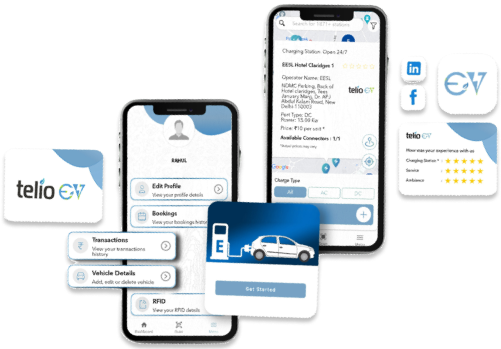Enhancing Electric Vehicle Charging with Advanced Management Software

The quick adoption of electric vehicles (EVs) has necessitated the development of efficient and user-friendly charging solutions. Central to this evolution are Electric Vehicle Charging Management Software (EV CMS) and EV Charging Apps, which streamline the charging process for both operators and users.
Understanding EV Charging Management Software
EV Charging Management Software acts as a thorough platform that makes it possible for Charge Point Operators (CPOs) and other stakeholders to monitor, manage, and optimize EV charging stations. Key functionalities consist of real-time tracking of charging stations, user authentication, payment processing, and energy management. By integrating these features, the software ensures effective operation and boosts the user experience.
Key Features of EV Charging Management Software
1. Real-Time Monitoring and Control: Operators can supervise the status of charging stations, track energy usage, and address issues without delay.
2. User Authentication and Access Control: The software manages user gain access to, guaranteeing that only authorized individuals can utilize the charging centers.
3. Payment Processing: It helps with seamless transactions, supporting numerous payment techniques to cater to varied user choices.
4. Energy Management: By optimizing energy distribution, the software reduces functional costs and supports grid stability.
5. Reporting and Analytics: Comprehensive data analysis help in informed decision-making and tactical preparation for network expansion.
The Role of EV Charging Apps
EV Charging Apps are created to offer EV owners with convenient access to charging facilities. These applications provide features such as finding nearby charging stations, real-time schedule updates, navigation support, and remote monitoring of charging sessions. By boosting ease of access and user engagement, these apps play a vital function in promoting the adoption of electric vehicles.
Integration with Open Charge Point Interface (OCPI)
The Open Charge Point Interface (OCPI) is a standardized procedure that facilitates interoperability in between different EV charging networks. Combination with OCPI enables smooth roaming, allowing users to gain access to several charging networks with a single account. This interoperability boosts user convenience and broadens the ease of access of charging facilities.
Benefits of Implementing Advanced Charging Solutions
- Enhanced User Experience: User-friendly user interfaces and reputable services increase consumer complete satisfaction and commitment.
- Operational Efficiency: Automation and real-time monitoring minimize manual intervention, lowering functional expenses.
- Scalability: Advanced software solutions support the expansion Best EV Charging App of charging networks to satisfy growing demand.
- Revenue Generation: Flexible prices models and effective payment processing open new revenue streams for operators.
Conclusion
The combination of EV Charging Management Software and user-centric EV Charging Apps is essential ahead of time the electric vehicle environment. These technologies not only simplify operations for service providers but also substantially enhance the charging experience for users. As the EV market continues to grow, the adoption of such sophisticated solutions will contribute in meeting the increasing demand for effective and available charging infrastructure.